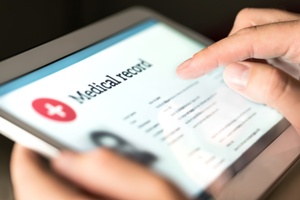 Not all brain injury accident cases are the same, but one thing is true of all cases. Before you can recover compensation for a brain injury, you must prove that someone else is legally responsible for your injury by providing convincing evidence about who was at fault for the accident and the extent of your brain injury.
Not all brain injury accident cases are the same, but one thing is true of all cases. Before you can recover compensation for a brain injury, you must prove that someone else is legally responsible for your injury by providing convincing evidence about who was at fault for the accident and the extent of your brain injury.
Accident Evidence
Many different types of accidents can cause brain injuries. Photos, videos, and witness statements are useful evidence no matter what type of accident caused your brain injury. Additionally, the following evidence may be useful in these specific types of accident cases:
Car and Motorcycle Crashes
Police reports can supplement photos, videos, and witness statements after motor vehicle wrecks.
Truck Crashes
Truck data recorders, maintenance records, driving logs, and police reports can be useful evidence of truck accident negligence.
Nursing Home Neglect or Abuse
Nursing home policies and procedures, staff logs, and patient charts can be important in a nursing home injury case.
Falls
Maintenance reports, previous accident reports, photos, or videos taken before the accident occurred that show the dangerous condition can help establish negligence in a fall or premises liability case.
Sports Injuries
Any evidence that indicates what the coach knew, or should have known, about your child’s risk of suffering a brain injury is relevant. For example, evidence that the coach allowed your child to play without appropriate safety equipment or that the coach put your child back in the game too soon after a suspected or confirmed head injury is important to your case.
Medical Malpractice
Medical records that show exactly what happened, which medical professionals were involved, and the actions taken or not taken by medical professionals will establish liability if you suffered a brain injury because of an anesthesiology error, a misdiagnosed stroke, or another form of medical malpractice.
Your accident lawyer may have even more ideas about the evidence to collect and analyze based on the facts of your specific case.
Brain Injury Evidence
Whether you suffer a traumatic brain injury, hematoma, or skull fracture, you will need evidence to convince the insurance company or the court of how badly you were hurt, how your injury impacts your life, and the value of your damages. Typically, this evidence includes:
Medical Records
Your healthcare records should include doctors’ notes, the results of diagnostic tests, medications used, surgeries performed, and other critical information.
Rehabilitation Therapy Records
If you receive physical therapy, occupational therapy, or speech and language therapy because of your brain injury, your treatment notes and treatment plan should be part of the evidence in your case.
Pay Stubs and Tax Returns
You may be unable to work at all, or you may be incapable of working the same hours for the same pay as you did before your accident. You deserve to recover for this lost income. Lost income includes wages, benefits, and income from self-employment. Any documentation that you have to prove the value of the income you can’t earn is critical to your case.
Expert Witness Testimony
Various expert witnesses can provide useful information about your injury and its expected impact on your future. These witnesses may include doctors, economists, and other specialists recommended by your attorney.
Personal Statements From You and Those Who See You Regularly
You, your family, your former co-workers, and your friends can describe how your brain injury has changed you and its impact on your daily life.
Use Evidence to Support Your Claim for Compensation for a Brain Injury
Collecting the evidence described above is not enough to compensate you for your brain injury. Instead, the evidence must be used to convince the court of the defendant’s legal responsibility to pay you a specific amount of damages.
Have You Suffered A Brain Injury?
If you’ve suffered a brain injury you need to speak with an experienced brain injury lawyer as soon as possible. Contact us online or call our office directly at 888.450.4456 to schedule a free consultation.
Related Links: